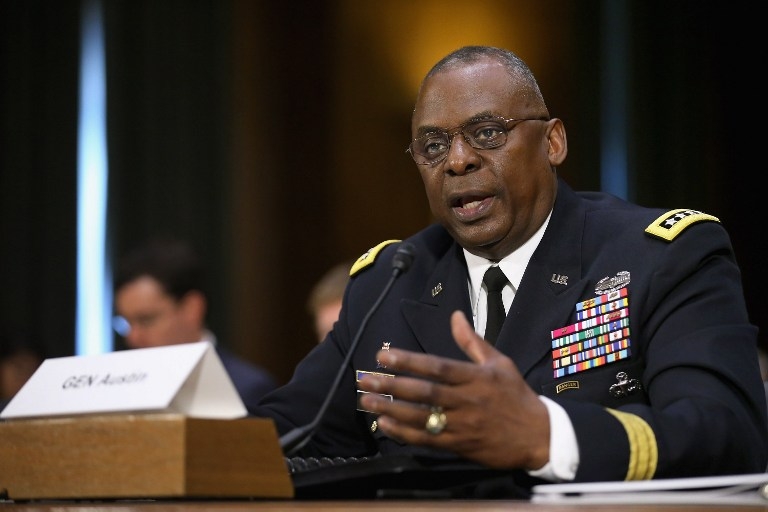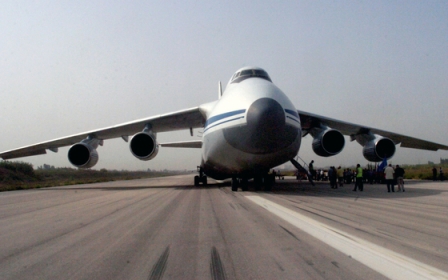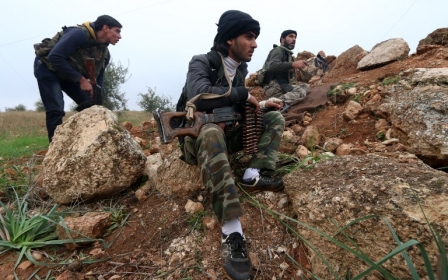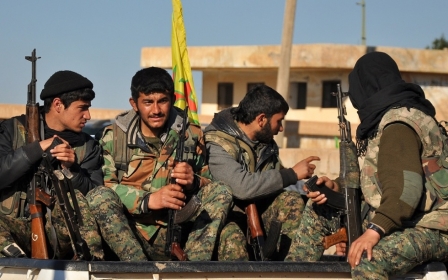US to rethink 'joke' training programme for Syrian rebels

US military officials appear to be preparing to scale back a high-profile programme to train and arm thousands of rebels to fight the Islamic State group in Syria following a top general's embarrassing admission that the $500mn scheme had produced just “four or five” battlefield fighters in its first year.
Lawmakers on the Senate Armed Services Committee described the programme as a “joke” and a “total failure” and accused military chiefs of being “divorced from reality” after hearing testimony on Wednesday from General Lloyd Austin, the head of US Central Command and the soldier leading the US fight against IS.
Congress approved funding for the programme last December with the goal of putting 5,000 US-trained fighters on the ground in Syria by the end of this year.
But most among an initial group of 54 fighters who entered Syria in July were either killed, captured or fled in clashes with the al Qaeda-linked Nusra Front, prompting the current administrative review of the programme.
Responding to a question about how many were still active, Austin told lawmakers: “It's a small number. The ones that are in the fight is, we're talking, four or five.”
He said he was also “considering the best means to employ these forces as we go forward”.
Asked to clarify whether the goal of the programme was still to produce 12,000 fighters, he said: “Well, we certainly at the pace we’re going, we won’t reach the goal that we had initially established for ourselves.”
Addressing reporters on Thursday, Peter Cook, the Pentagon's press secretary, said that officials were planning for the programme to continue “in some form or fashion” but conceded that they were looking at making “adjustments".
Speaking anonymously to the Associated Press news agency, military officials said a revised programme would aim to train just 500 rebels a year and that these would mostly be embedded within existing Kurdish and Arab fighting units in northeastern Syria.
The rebels would provide on-the-ground intelligence and coordinate US airstrikes against IS targets, the official added.
'Divorced from reality'
Austin's remarks - in which he claimed progress in the campaign against IS was being made and said: “We have the right strategy and the right approach” - provoked incredulity and scathing criticism from Republican members of the Senate committee.
“That's a joke,” said Kelly Ayotte, referring to Austin's estimate of the number of rebel fighters still active.
John McCain described the strategy as "an abject failure" and lambasted Austin's suggestion that the campaign against IS was making progess.
“I have never seen a hearing that is as divorced from the reality of every outside expert," he said.
Jeff Sessions added: “We have to acknowledge this is a total failure. I wish it weren’t so, but that’s the fact.”
Also addressing the Senate committee, Christine Wormuth, the US Under Secretary for Defence, said the “train-and-equip” programme was still in its early stages and that more than 100 fighters were currently being trained with more recruits in the pipeline.
But Claire McCaskill, a Democratic member of the committee, said: “If we get to the end of the year with us bragging about the difference between a 100 and a 120, it’s time for a new plan.”
Responding to the criticism, Austin also appeared to inadvertently confirm reports that members of US special forces had been present on the ground in Syria alongside Kurdish YPG fighters since before the launch of the training programme last year.
He told the committee that the training programme's slow start did not mean that the US was “not creating effects on the battlefield”, and said that special forces had been “engaging and enabling elements like the YPG” since the outset of Syria's civil war.
But in a subsequent clarification, US Central Command said in a statement that he had been referring to a coordinating relationship with Syrian anti-IS forces.
"There are no US military forces on the ground in Syria, nor have we conducted any US military training of indigenous Syrian forces in Syria,” the statement said.
New MEE newsletter: Jerusalem Dispatch
Sign up to get the latest insights and analysis on Israel-Palestine, alongside Turkey Unpacked and other MEE newsletters
Middle East Eye delivers independent and unrivalled coverage and analysis of the Middle East, North Africa and beyond. To learn more about republishing this content and the associated fees, please fill out this form. More about MEE can be found here.




